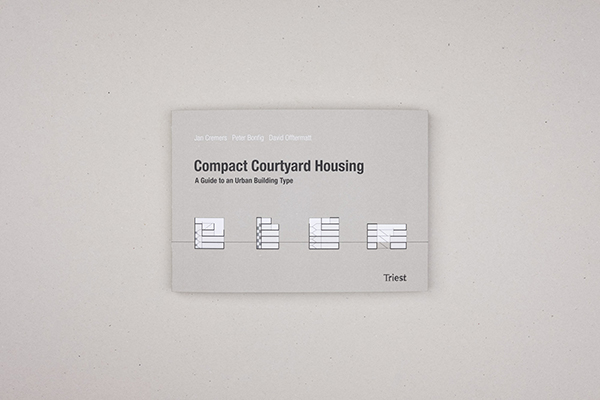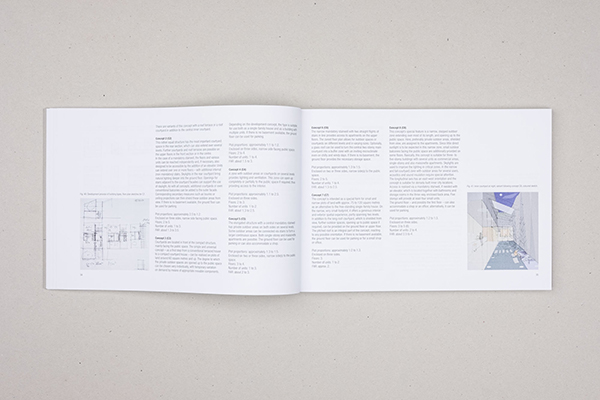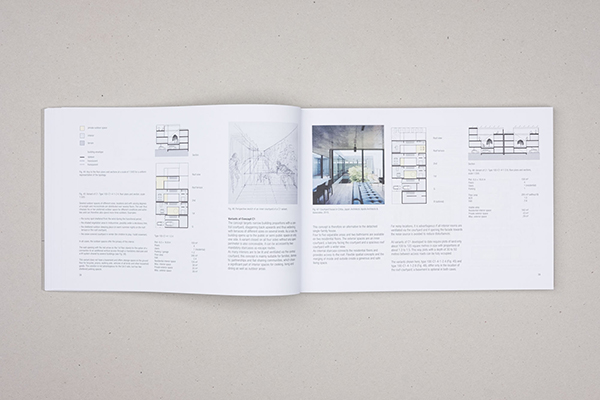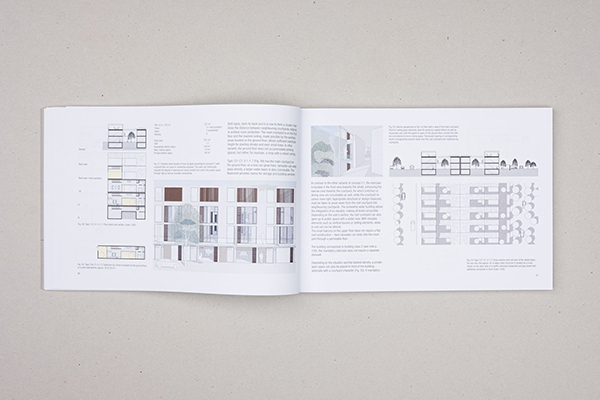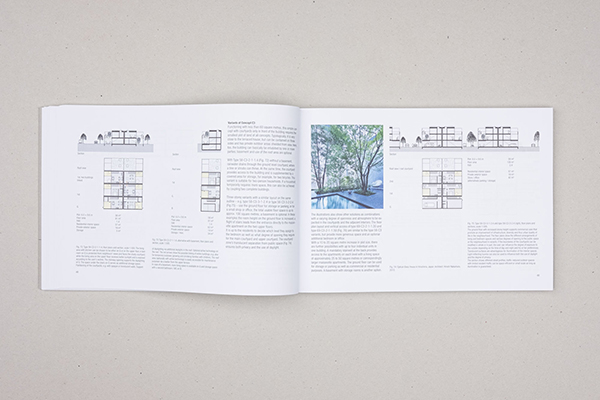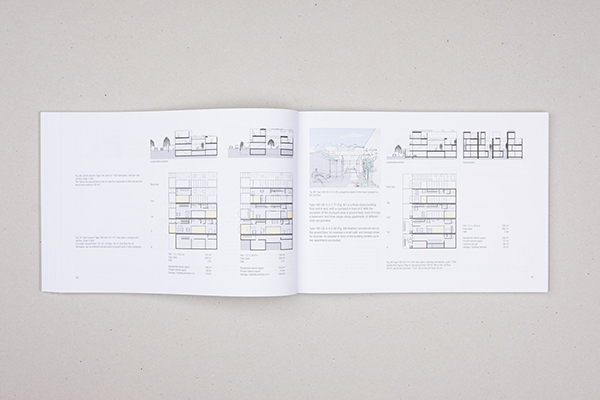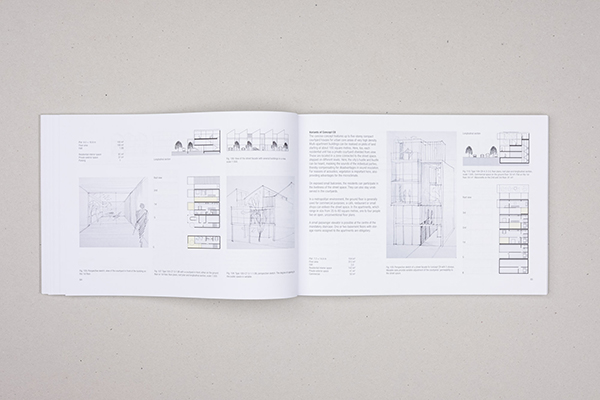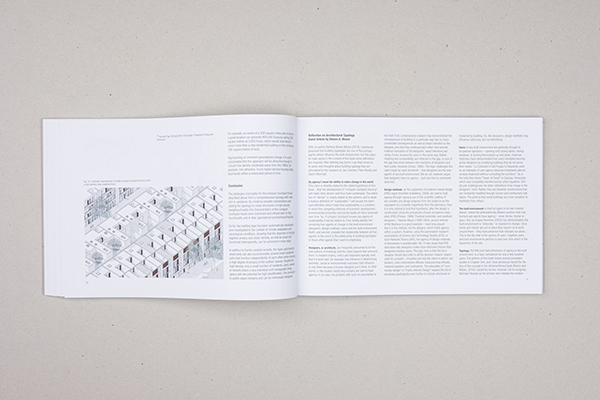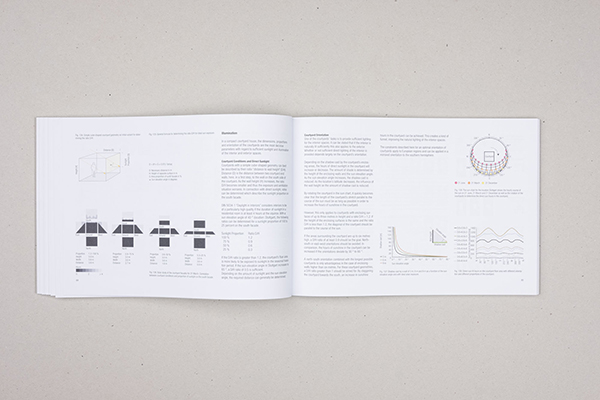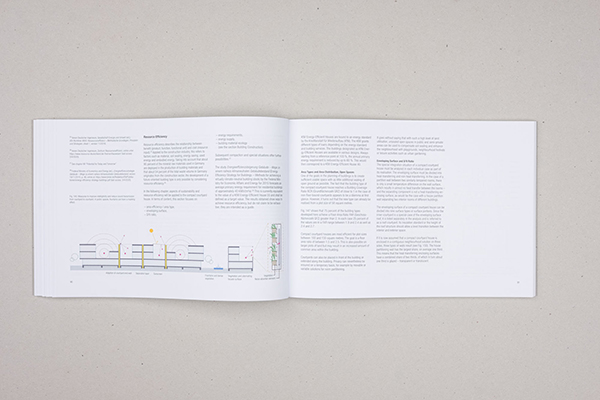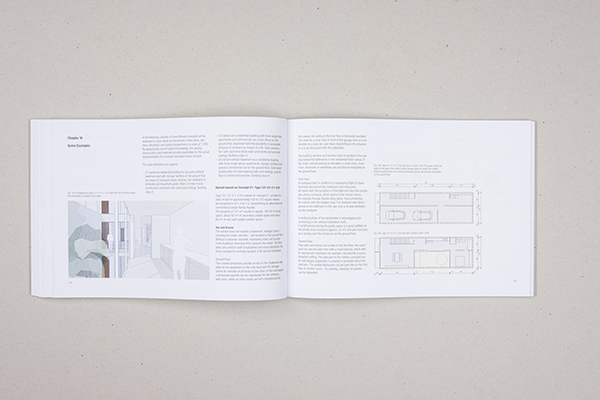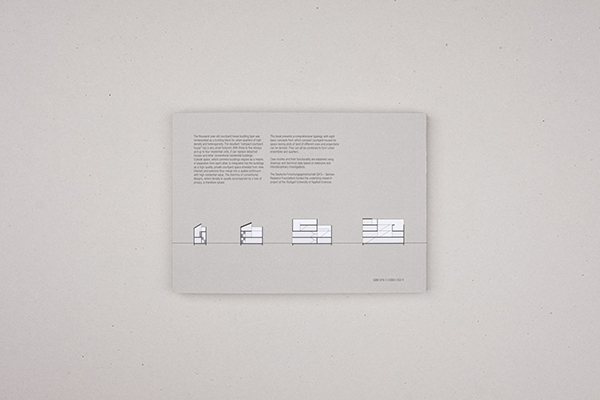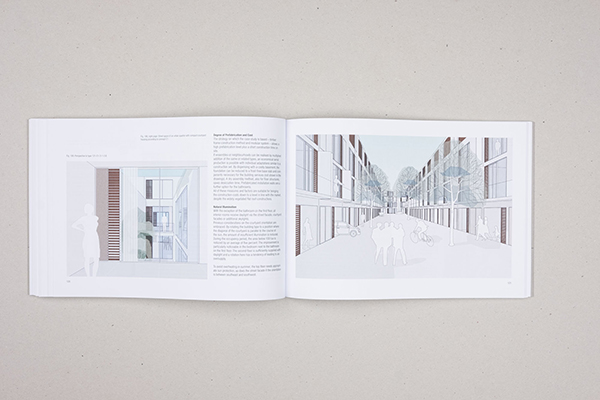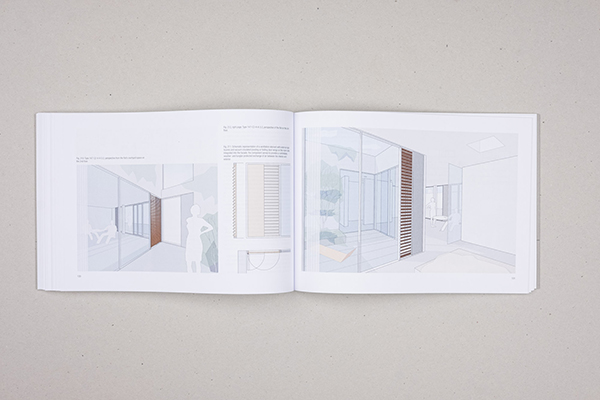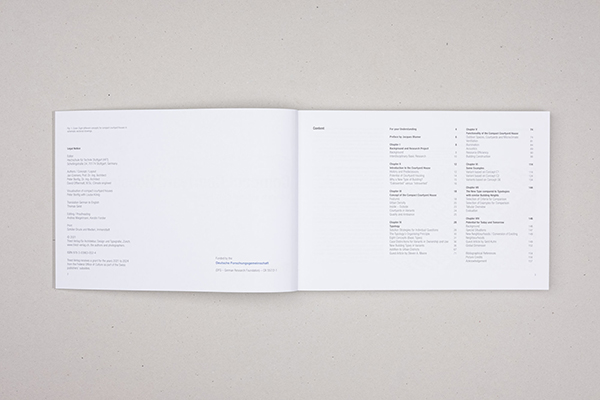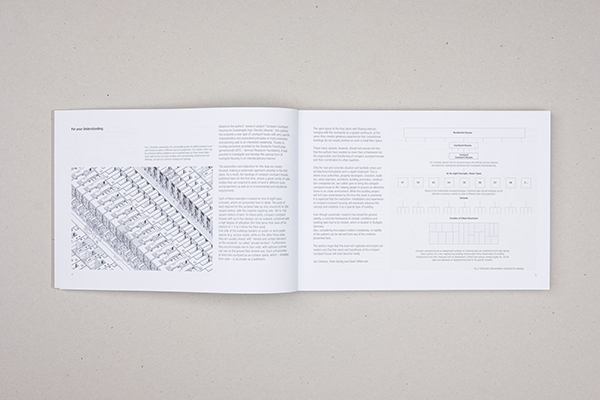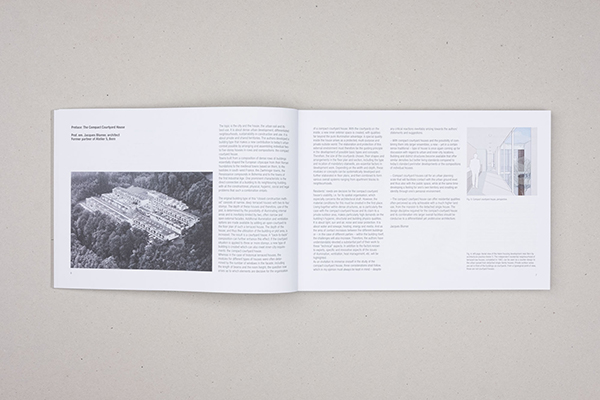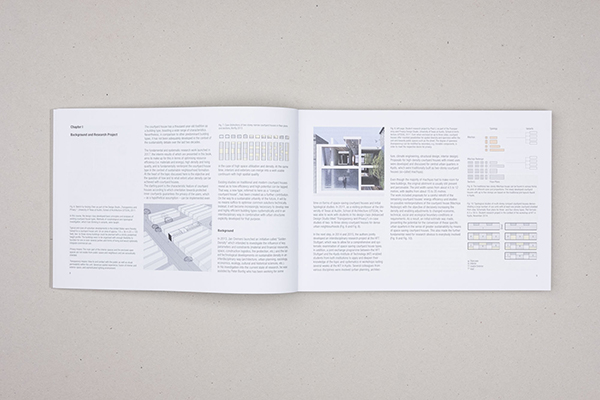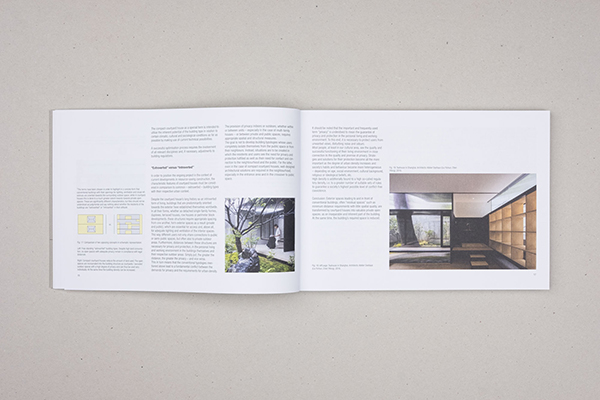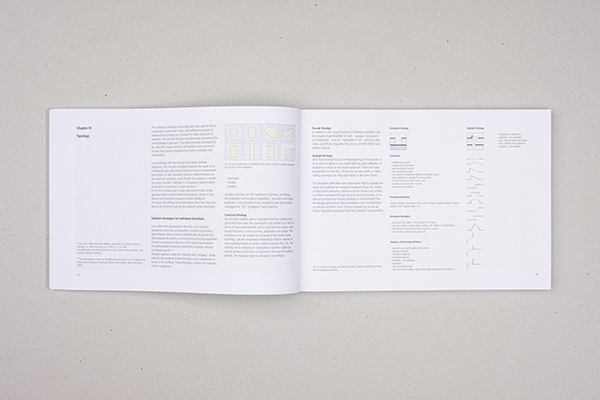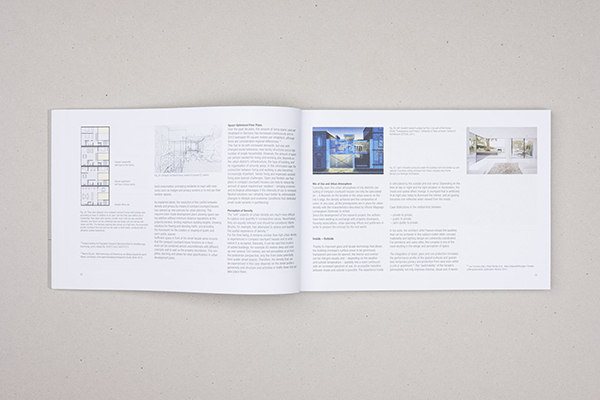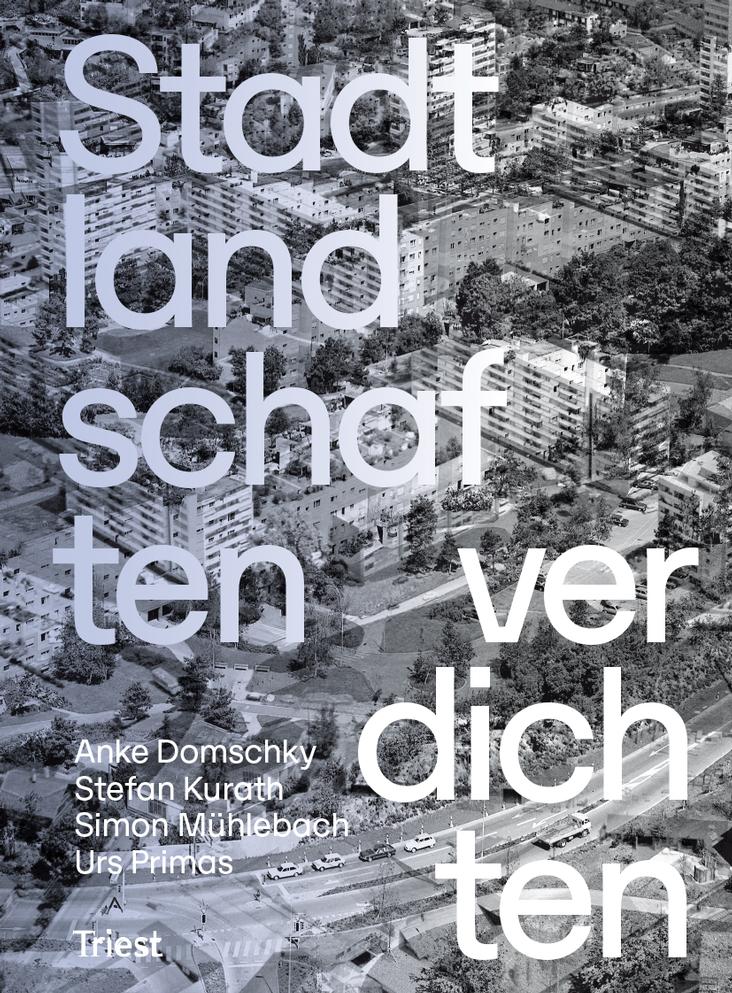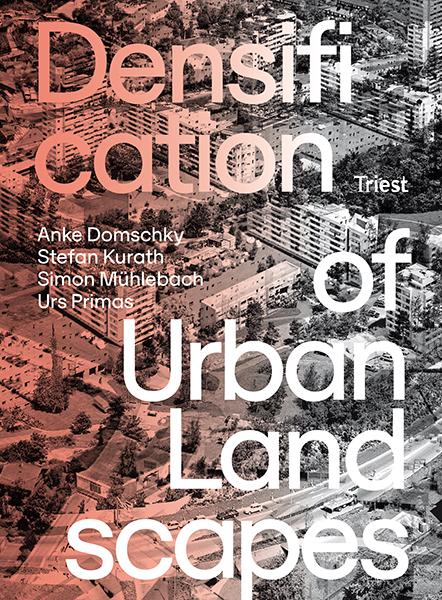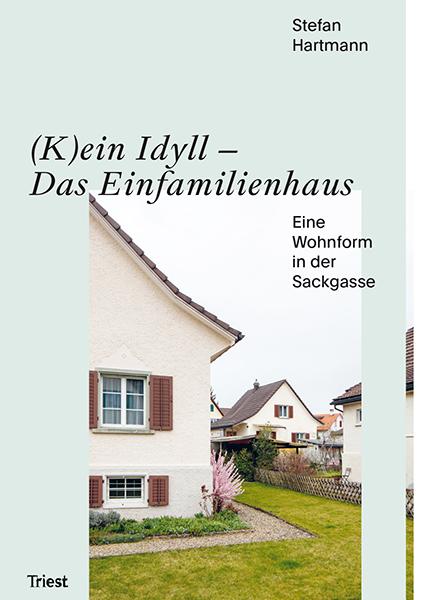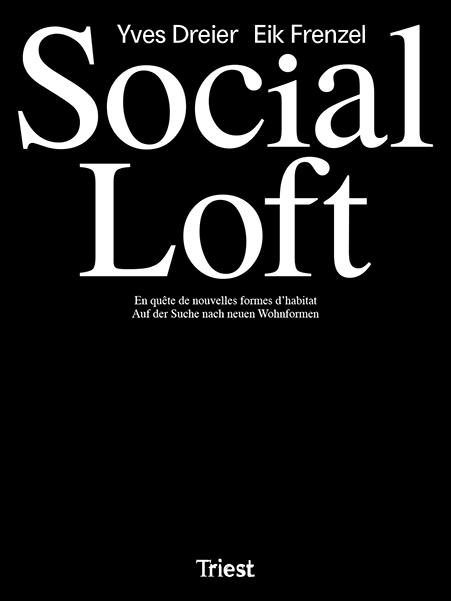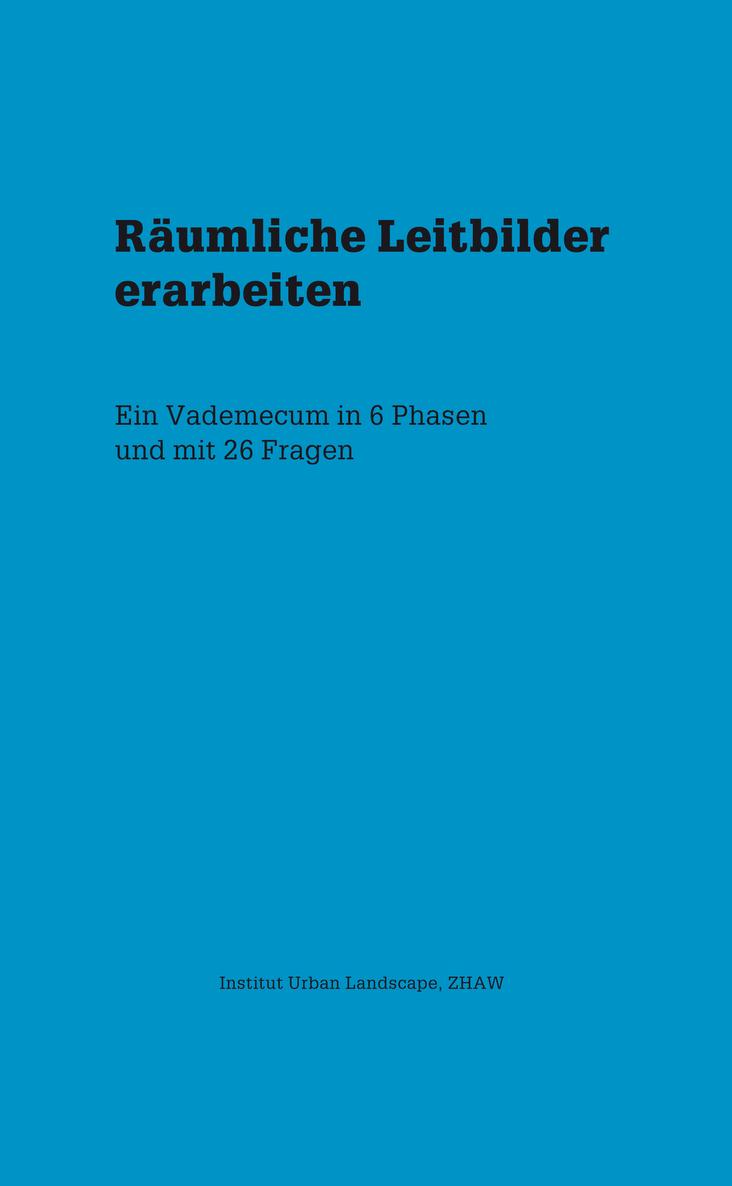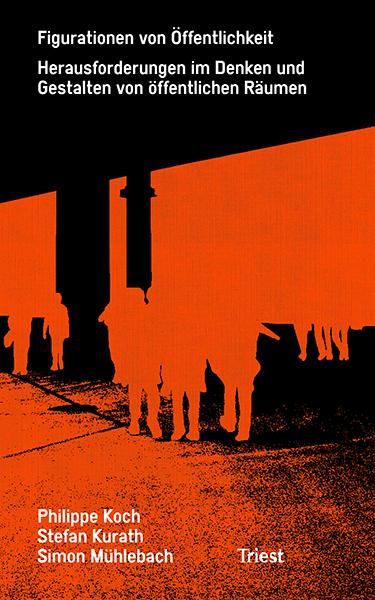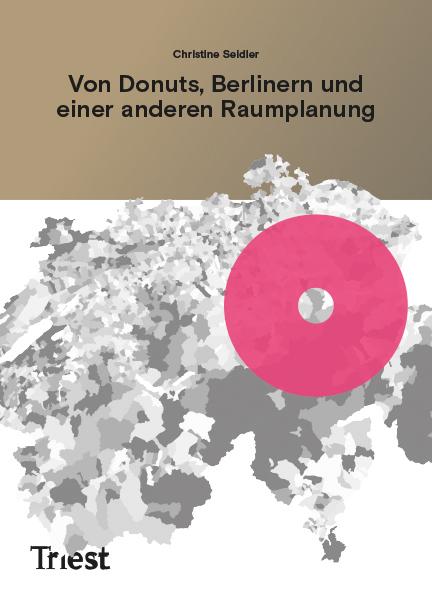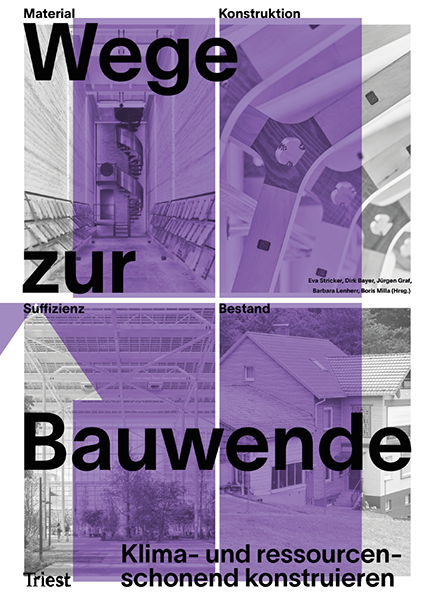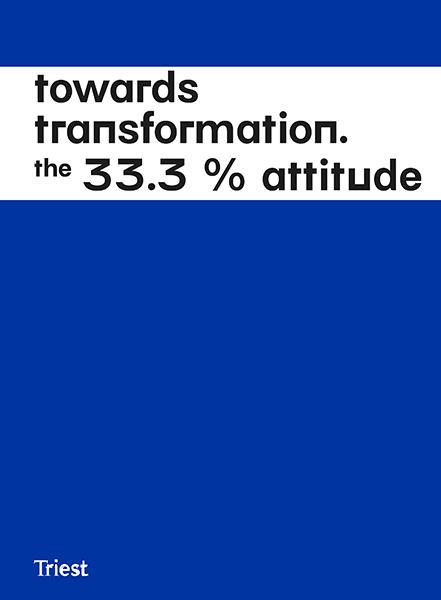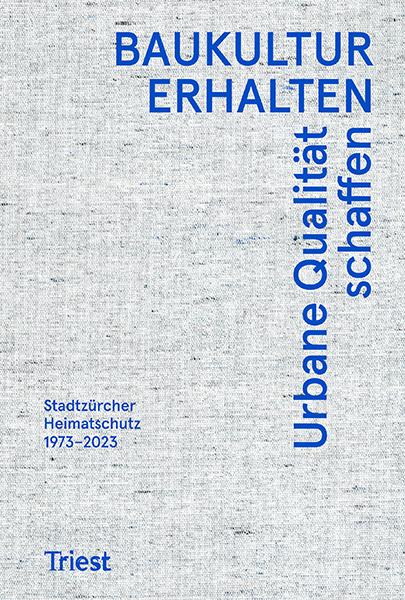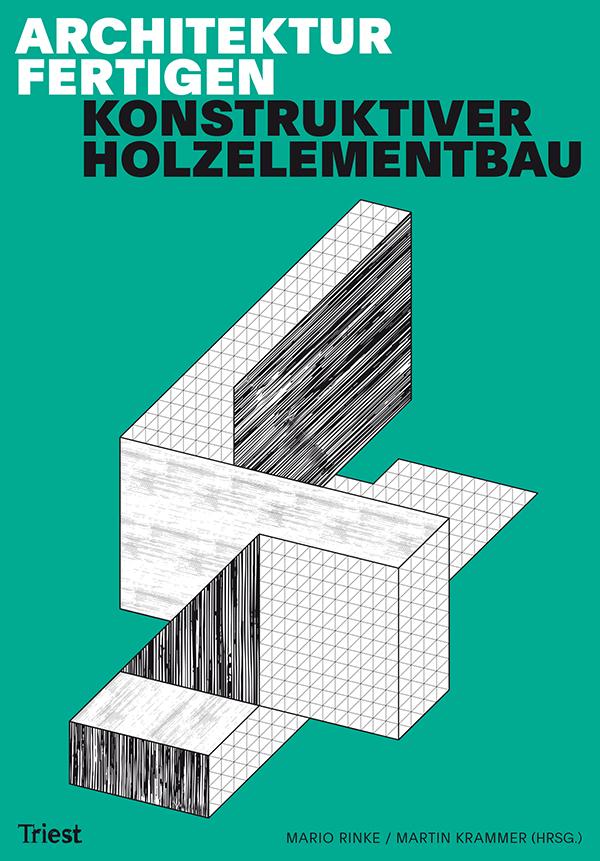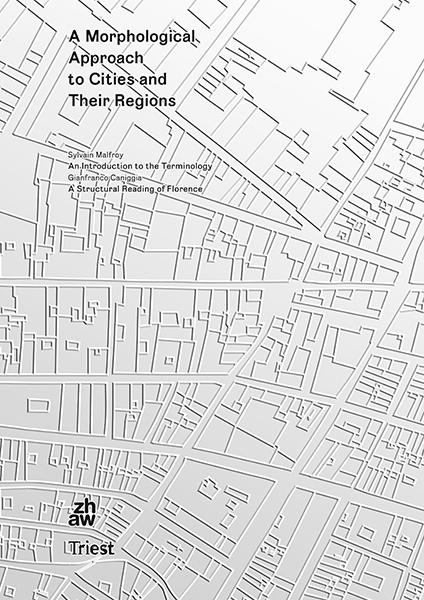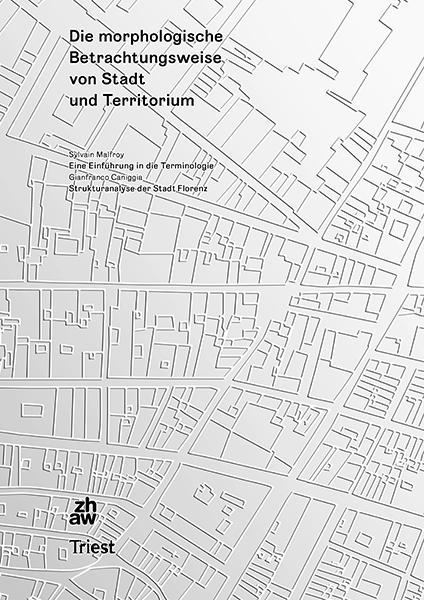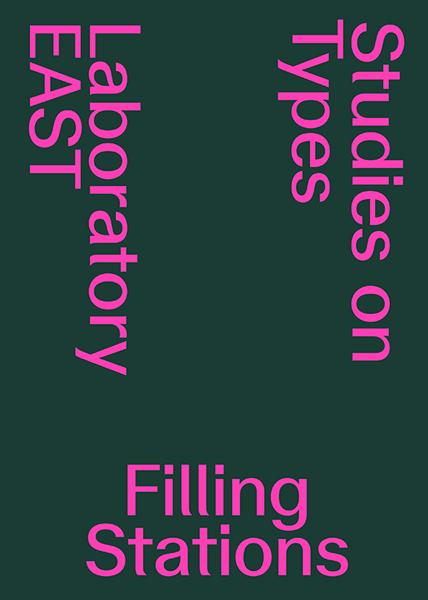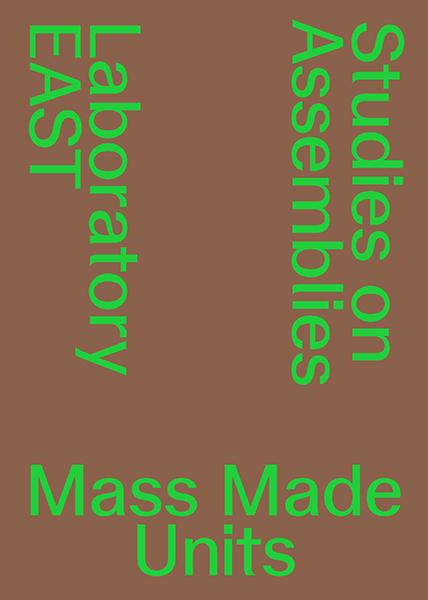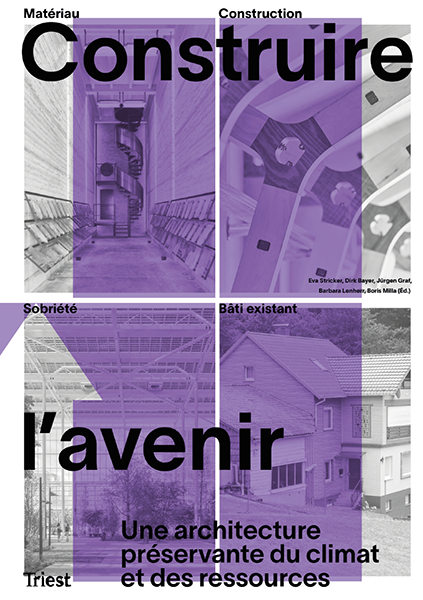HFT Stuttgart (eds.), Jan Cremers, Peter Bonfig, David Offtermatt
Compact Courtyard Housing
A Guide to an Urban Building Type
English edition
Euro (D) 39.– / Euro (A) 40.–
158 pages, ca. 240 images and plans, 25 × 17,6 cm, softcover with flaps
Available
ISBN
978-3-03863-052-4
→ Excellent living quality on a small area: a building typology for urban redensification of existing districts
→ Specifications and planning criteria – a practical handbook
→ Typology for future housing models
The courtyard house, a type of building that harks back thousands of years, is being reinterpreted as a module for high-density, heterogeneous urban districts. The Compact Courtyard House, generally with three closed exterior walls, takes up only very little space. With three to five storeys and up to four dwelling units, it can replace detached houses and even conventional residential buildings. The outside space that ordinary buildings need as spacing between each other is incorporated into Compact Courtyard Houses as high-quality courtyard space protected from outside viewing. Interior and exterior spaces can thus merge into a single spatial continuum with great utility value.
Each flat has at least one such courtyard, as private as a bathroom. This resolves the dilemma of conventional types of construction in which density equals loss of privacy and stress caused by unwanted visibility.
Going into great detail, the books presents different types and variations for sites of different sizes and proportions. All can be readily combined to create urban ensembles and districts. Nevertheless, each building can remain largely autonomous on its own plot, thus ensuring a simple situation in terms of ownership.
Each flat has at least one such courtyard, as private as a bathroom. This resolves the dilemma of conventional types of construction in which density equals loss of privacy and stress caused by unwanted visibility.
Going into great detail, the books presents different types and variations for sites of different sizes and proportions. All can be readily combined to create urban ensembles and districts. Nevertheless, each building can remain largely autonomous on its own plot, thus ensuring a simple situation in terms of ownership.
There are many possibilities of deploying this kind of building in the urban setting while only taking up little area: redensification of existing residential areas, conversion of brownfield and leftover areas, new construction of mini-quarters and even larger urban districts.
The book demonstrates the characteristics and extensive typologies of the Compact Courtyard House, providing planners with specific information and specifications for their work.
About the Editors
Jan Cremers, Prof. Dr.-Ing., architect, Professor of Building Technology and Integrated Architecture, Dean of the Faculty of Architecture and Design at HFT Hochschule für Technik Stuttgart. Specialist national and international publications and related research and development activities.
Peter Bonfig, architect with more than thirty years expertise in the development and application of innovative concepts and technologies. Activities in teaching, research and practice in Europe, USA, Australia and Japan and as an architectural photographer.
David Offtermatt has been a research associate at HFT Stuttgart since 2017. He studied Climate Engineering there and went on to acquire his master’s degree in Energy and Building Systems at Biberach University of Applied Sciences. Since April 2021 he has also been working for durable planning and consulting in Zurich.
